Hong Kong’s Ng Ka Long spoke to Badzine recently about his successful transition from junior doubles champion to seasoned singles veteran.
Interview by Miyuki Komiya, Badzine Correspondent. Photos: Badmintonphoto
Additional photos by Don Hearn and Miyuki Komiya
Ng Ka Long’s name has been known in the badminton for many years already. Way back in 2009, he scored the triple at the Asian Under-16 Championships, winning mixed doubles along with boys’ doubles and singles. By 2012, he really made it big as a teenager as he and Lee Chun Hei won the boys’ doubles title at the World Junior Championships.
After the split-up of that championship partnership, Lee won a Grand Prix Gold, then an Asian Championship, and then a Superseries title in consecutive years, while Ng Ka Long had slipped into obscurity, while posting solid results mostly in International Challenges and reaching a Grand Prix final in Canada just weeks after his twentieth birthday.
In 2015, he reached his second straight Canada Open final and then last autumn, things really started to come together for the lanky young singles ace. He reached the quarter-final of the French Open Superseries, then won the Bitburger Open Grand Prix Gold, then beat Lin Dan to reach the semi-final of his home Superseries event.
This spring, he beat Chen Long to reach the semis of the Singapore Open, which helped propel him in the world’s top ten for the first time in his career.
Badzine’s Miyuki Komiya caught up to Ng Ka Long on the sidelines of last month’s Japan Open and the young player spoke about the challenges he has faced and the way he has dealt with them.
Badzine: When did you start badminton training in earnest?
Ng Ka Long: I started training at 8 years old but I started actually playing the game at age 5 because my father also liked to play badminton and sometimes he would play with me and his friend on the weekends.
Badzine: Why did you choose badminton instead of other sports?
Ng Ka Long: I did also play table-tennis before. I had a table for table-tennis at my home so I could play it anytime I wanted to but I liked badminton more because the shuttle goes so fast. Sometimes when I played with my opponent, the mental, physical and strategic aspects of competition were very exciting.
My badminton idols were Chen Hong and Xia Xuanze of China. I watched them play on TV and I thought I wanted to be a badminton player like them.
Badzine: Could you really feel all of those things when you were 8 years old?
Ng Ka Long: I was able to, but of course not as well as I can now. I still thought a lot about how to beat my opponents, though, yes.
Badzine: Did your parents agree with your decision to become an athlete?
Ng Ka Long: My coach wanted to me to become a full-time badminton player when I was 15 years old but my parents thought that was too early. They wanted me to finish secondary school and to get a diploma before I became a professional player but they let me decide by myself so I finished school when I was 18 years old, and then I changed and became a full-time professional player.
Badzine: How many coaches have you had on your way to joining the national team?
Ng Ka Long: I trained under my first coach when I was 8 years old and I joined the Hong Kong junior team when I was 12 years old so I trained under one coach who was responsible for the senior and the junior team. In 2014, another coach came from China. I have two coaches now.
Badzine: Were you able to adapt to another style easily when you changed coaches?
Ng Ka Long: Every coach has a different style and it was no problem when I was young. But in 2014 when I was 20 years old, the Chinese coach came and I found it hard to follow the Chinese coaching style. He focused on physical fitness and we had to train longer and longer so when he first came I sometimes thought: “I can’t get used to this!”
Badzine: You were the World Junior Champion in boys’ doubles in 2012. When did you choose singles as your discipline?
Ng Ka Long: I played both singles and doubles when I was a junior and then I focused only on singles in 2013 when I was 19 years old, just after the World Junior Championships. I like to play singles more and I thought my body was better suited to singles than to doubles. I didn’t have enough power, my smash was not so very hard, and so I thought it would be better to play singles.
Badzine: Why did you choose to be an athlete instead of studying in college?
Ng Ka Long: Because I love to play badminton. I love badminton more than studying or doing some other kind of work so that’s the way I chose to go.
So far, my badminton career has enabled help me to make quite a bit of money. Compared with other people my age, I can make more now so I will put my trust in playing badminton for now. But someday, after I retire, I will go back to school to study.
Badzine: In Hong Kong, is it normal for athletes to go back to school after they retire?
Ng Ka Long: Some former players work as coaches or have some small business but others go back to school.
Badzine: What are the popular sports in Hong Kong?
Ng Ka Long: Actually, badminton is one of the popular sports in Hong Kong, along with football, basketball and so on. When we reach semi-finals and finals in tournaments in Hong Kong, the venue is filled with spectators, especially for matches played in the evening.
Badzine: Are there many children who want to become elite badminton players?
Ng Ka Long: Before, there were not so many because they knew that athletes couldn’t make much money and they had no other choice but to be coaches after retiring. Also, parents have not wanted their children to become athletes. But now is better because they can see how government treats elite athletes and today athletes have more choices after they retire. So parents are more likely to allow their children to decide whether to become elite athletes.
Badzine: How did you manage your schedule when you were a junior? Especially studying and training. I heard you were very smart.
Ng Ka Long: I studied at school from 8am to 3pm, and then I immediately went to train, and then I went back to home and did my homework. Every day was almost the same. I didn’t have time to hang out with my classmates and had no time for other interests. Every day I had to balance the two sides. I think the time management is very important for junior players like me because the training was already using most of my time. I had to manage my time very well in order to keep the two sides in balance.
Badzine: What was the motivation that helped you believe in yourself?
Ng Ka Long: If I hadn’t been able to keep up with my studies, my parents wouldn’t have allowed me to keep playing badminton. I had to have good results in school in order to let them know I could manage both studying and badminton training with good balance. I wanted to play badminton, so that convinced me to study hard.
I also have high expectations of myself. I don’t want to do well only in one area. I also forced myself to study hard. I needed to stay serious about my grades. At least in the past.
Badzine: How did you keep believing in yourself when you were a junior?
Ng Ka Long: Actually, I didn’t have so much belief in myself when I was a junior. I just gained confidence with the tournaments I played in. When I beat strong players, my confidence slowly became higher and higher. I had to tell myself that I couldn’t give up on myself, because I was still young and I kept thinking, “Maybe I can become one of the top players in the world.” I just kept telling myself to believe. Of course, I had to face some ups and downs. All the while I just told myself to never give up.
Badzine: When you feel down, how do you raise your spirits?
Ng Ka Long: My coach, family, and friends give me advice. Not only for badminton. After hearing the advice, I became happier and have energy and motivation.
Badzine: What were the hardest days in your badminton career?
Ng Ka Long: When I decided to focus to singles, those were the hardest days, especially at the beginning. In my junior time, I did well in both singles and doubles and it was in doubles that I was able to get the World Junior Championship title. Many people wanted me to play doubles with my partner because we had a good chance to get into the top 10 in the world.
I knew that it would be better for me to play singles but when I lost a singles match, many people would say “Why don’t you play in doubles? If you played doubles, your ranking would be so much higher than it is now in singles. Why don’t you just focus on doubles?”
A singles player needs a long time to become a top player, maybe for 4 or 5 years. So they wanted me to play in doubles in order to become a top player in a very, very short time. So I felt a lot of pressure at that time. Every time I went to a tournament, I told myself I mustn’t lose in singles. I didn’t want to hear that voice.
But my coach, family, and friends advised me a lot, telling me things like, “Many top players are 23 or 24 years old. You have a lot of time until you’re that age. You have the chance to be a top player.” So I trusted their kind advice and trained as hard as I could every day. Finally, I managed to get good results.
Badzine: Last year, you scored a win against Lin Dan of China at the Hong Kong Open. How was your feeling before that match?
Ng Ka Long: I didn’t have any pressure for the match. There were many people who came to cheer for me so I just wanted to give my best performance for the Hong Kong spectators. I didn’t think of winning or losing.
Badzine: Did anything around you change after you beat Lin Dan?
Ng Ka Long: Especially, the media in Hong Kong. After the match, many journalists focussed on my match and came to me after every match to interview me. They were talking on their sports news about all of my matches, whether I won or lost. On the plus side, many people came to know who I was and I become more famous. But on the other hand, there was more and more pressure on me.
Badzine: What are the important things to be strong player?
Ng Ka Long: Of cause, the training is the most important. If players don’t train enough, they can’t stay at their level and they fall very quickly. And another important thing is the attitude toward pressure. If you can’t face the pressure with a positive attitude, you must lose and also fall very quickly. So training and attitude are the most important for top players.
Badzine: How was your Olympic experience?
Ng Ka Long: The Olympics had a different mood and atmosphere from other big tournaments like the Superseries. If I want to handle the pressure that is on me, I must play well in a relaxed mood like I do in other tournaments. This experience was very useful for me for the future.
Badzine: What do you want for the future?
Ng Ka Long: I train with both older and younger players. Sometimes I give some advice to younger players. I hope their level will continue to rise so that we can all join in Superseries tournaments together like Japan’s women’s singles players do.
![Ng Ka Long – From prodigy to seasoned pro Hong Kong’s Ng Ka Long spoke to Badzine recently about his successful transition from junior doubles champion to seasoned singles veteran. Interview by Miyuki Komiya, Badzine Correspondent. Photos: Badmintonphoto Additional […]](http://www.badzine.net/wp-content/uploads/ngg_featured/20151022_1827_FrenchOpen2015_DSC_6619_rotator.jpg)
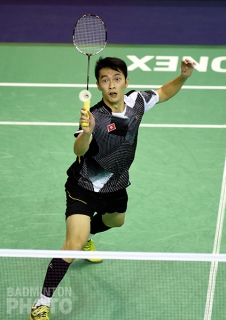
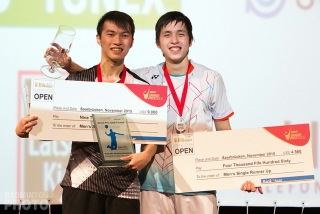
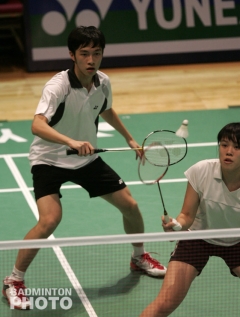
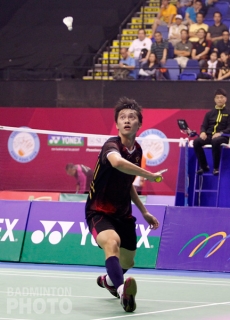
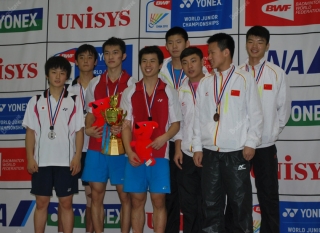
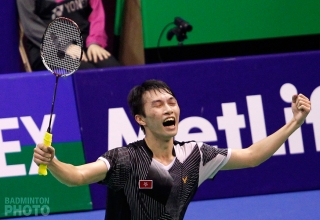
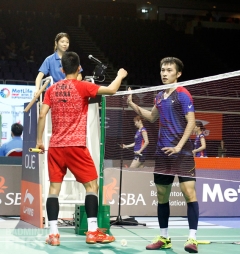
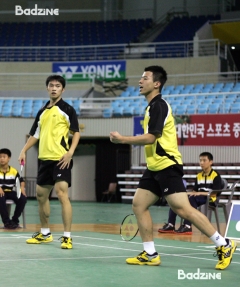
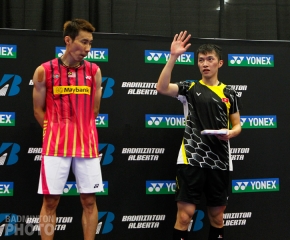
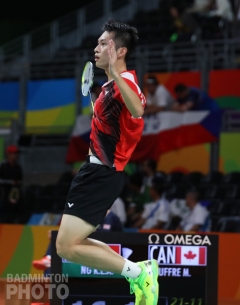

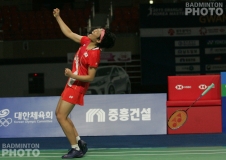
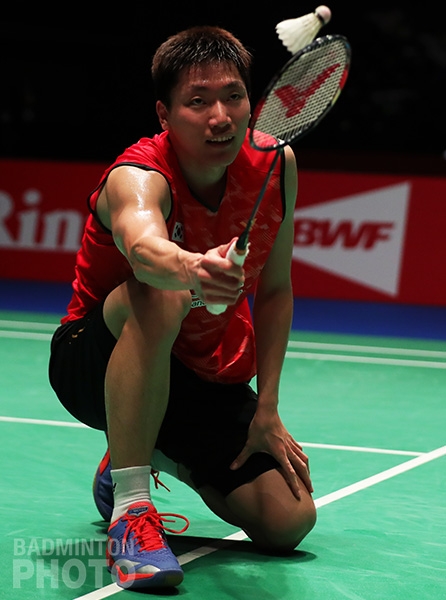
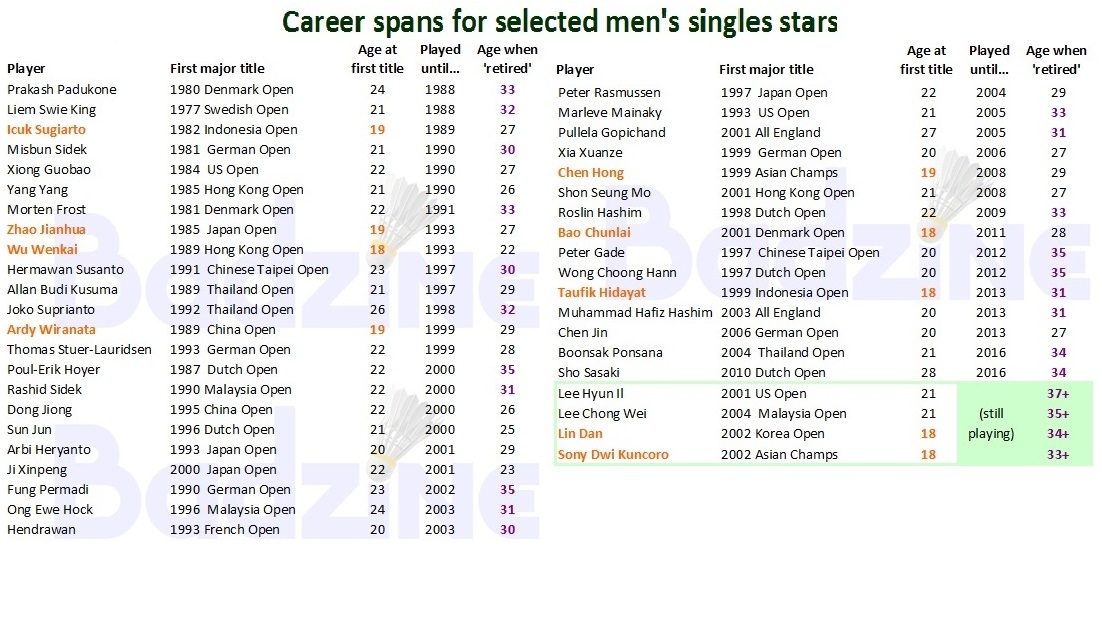
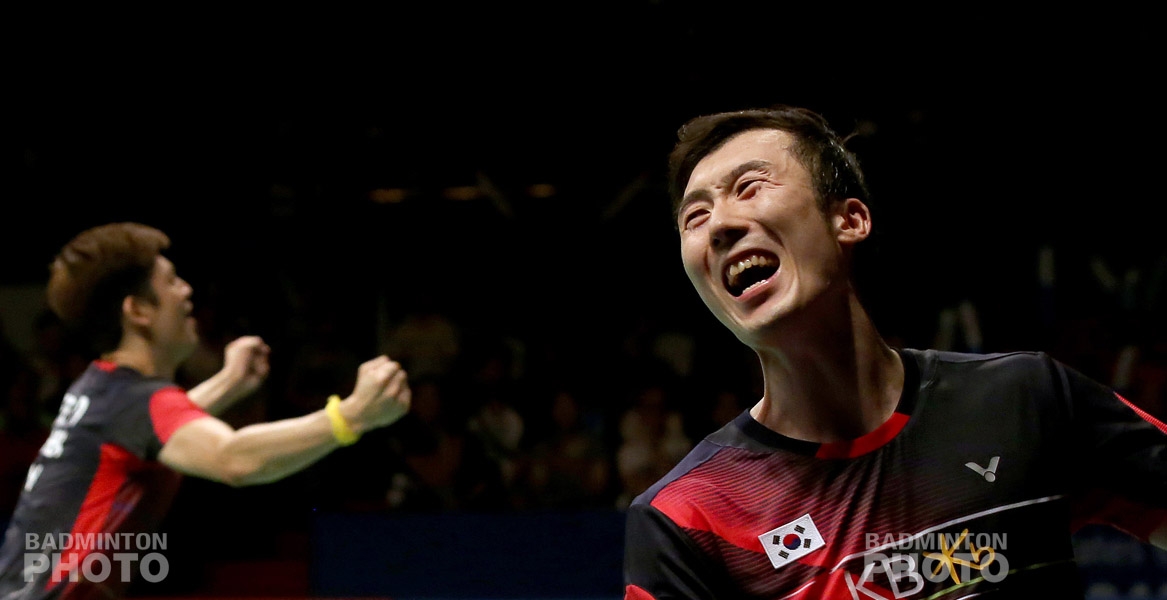
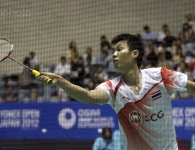
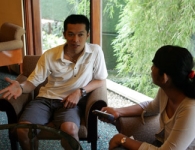
Leave a Reply